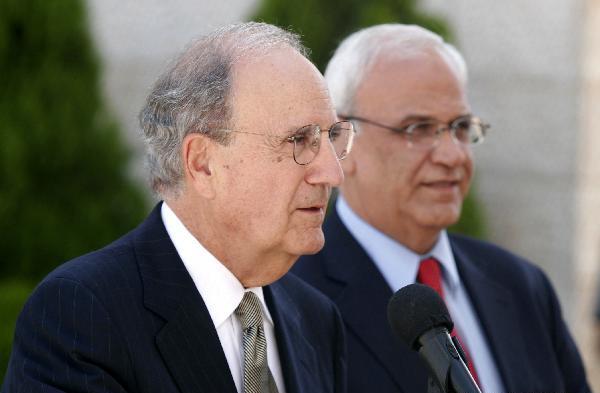Global General
Peacemaking in Mideast difficult: US envoy
(Xinhua)
Updated: 2010-07-18 09:26
 |
Large Medium Small |
|
US Middle East envoy George Mitchell (L) speaks during a press conference following his meeting with Palestinian President Mahmoud Abbas in the West Bank city of Ramallah, July 17, 2010. [Xinhua] |
RAMALLAH - US special envoy to the Middle East George Mitchell, who is mediating between Israel and the Palestinians, said Saturday making peace in the Middle East is difficult.
"We recognize the difficulties and the complexities involved in trying to realize this mission, but we are determined to continue our efforts," said Mitchell after meeting with Palestinian President Mahmoud Abbas in Ramallah.
But Mitchell and the US administration are eager to let the two sides move to face-to-face negotiations even before the four- month ultimatum of the proximity talks.
Mitchell described his meeting with Abbas, who refuses to jump to the direct talks before progress is made during the proximity talks, as "very candid and productive."
"We look forward to continuing that discussions in the near future in an effort to realize the vision that President (Barak) Obama set for us of comprehensive peace in the Middle East," Mitchell said.
Mitchell said the peace should start with an agreement between Israel and the Palestinians before expanding to Arab countries in the region, including Syria.
Palestinian officials refused to talk to reporters following their three-hour meeting with Mitchell.
Earlier, Saeb Erekat, chief Palestinian negotiator, said that President Abbas "will tell Mitchell that we are not against the direct talks and will explain that Israeli Prime Minister Benjamin Netanyahu has blocked the direct talks and he has the key to the direct discussions."
Erekat said Netanyahu has to declare a freeze in settlement constructions in the West Bank and East Jerusalem, the capital of the future Palestinian state, and accept a Palestinian demand that talks "when resume" should start from the last point they stopped at.




